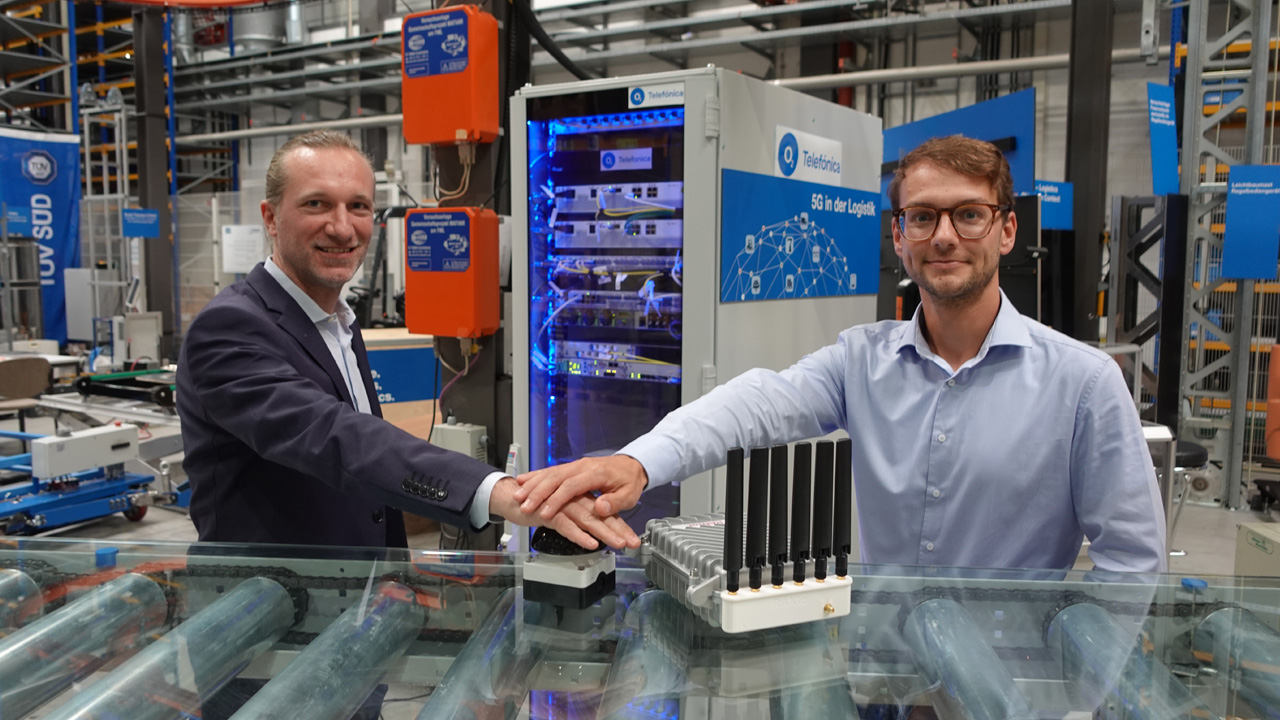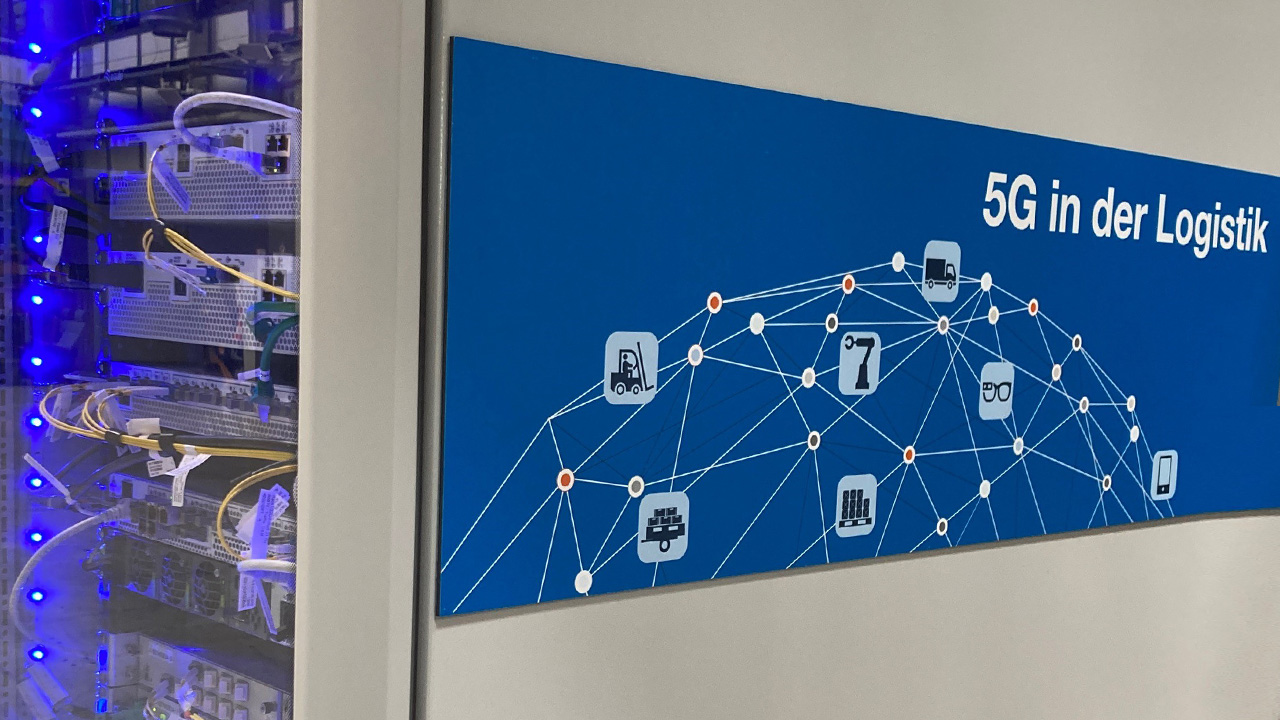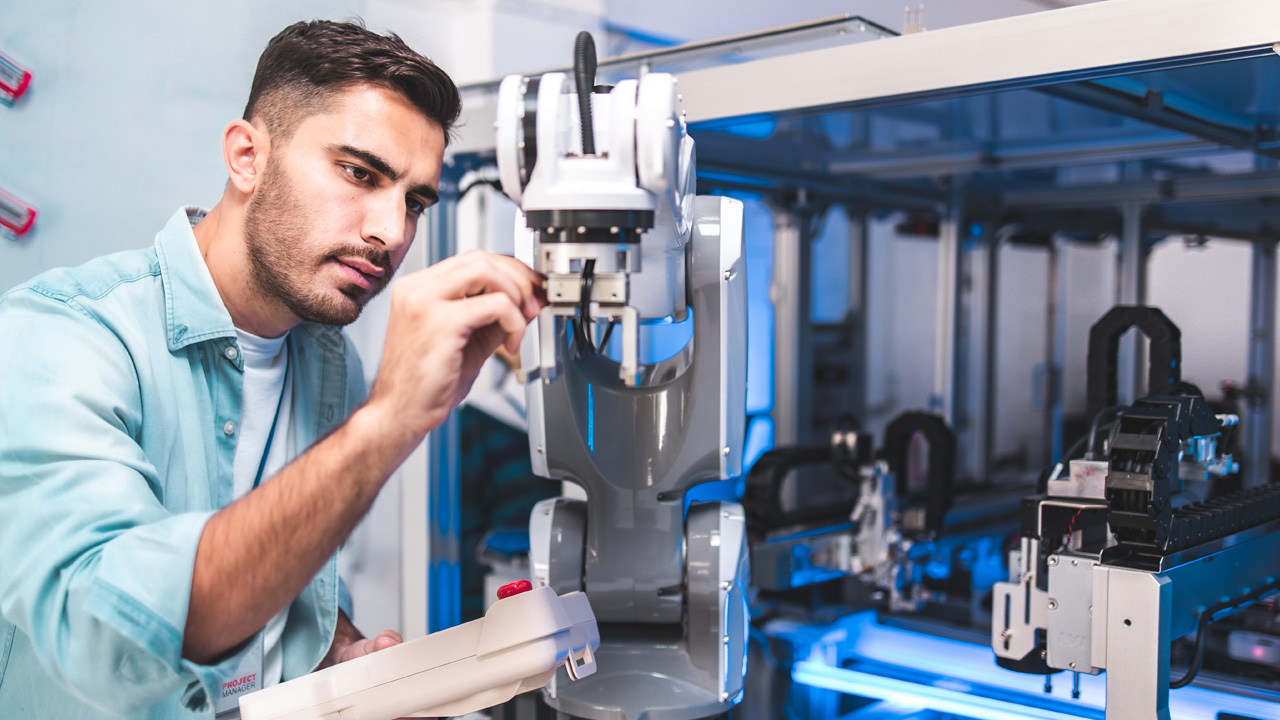26.07.2022
5G campus network for university research:O2 Telefónica provides Technical University of Munich with digital springboard for more innovations
Scientists at TUM want to use 5G to improve the use of autonomous transport vehicles.
- Private 5G standalone network from O2 Telefónica enables boost for digitization of industry
- First scientifically used 5G campus network in Munich
- University of excellence researches use of 5G technology for industrial application in areas of "materials handling, material flow, logistics"

Karsten Pradel
"Innovative strength and efficient value chains based on state-of-the-art technologies are strengths of German industry. The rapid deployment of the latest mobile communications standard 5G can further strengthen the performance of German companies."
Karsten Pradel, B2B Director responsible for the business customer segment at O2 Telefónica.
The 5G campus network for TUM

Frank Schmidt-Künzel from O2 Telefónica and Leonhard Feiner, team leader at TUM's Chair of Materials Handling Material Flow Logistics, put the 5G campus network into operation.
The 5G campus network at TUM provides a closed, secure research and development environment without connection to the public mobile network. It delivers high-performance network coverage in the chair's own research and development labs. The aim of the Chair of Materials Handling Material Flow Logistics is to use the latest technology to explore the various functions and possibilities of 5G in the field of technical logistics and to test them in feasibility studies. The focus is particularly on the autonomization of robotics solutions in intralogistics and the collaboration of robots.
In addition to setting up and operating the 5G campus network, O2 Telefónica will also support the university with intensive engineering consulting. This type of collaboration will enable the chair to familiarize itself with 5G technology in the shortest possible time and thus pursue its research projects quickly.
"We have set up a 5G campus network for TU Munich, where the university can research the practical benefits of the technology for industry," explains Karsten Pradel from O2 Telefónica. "The researchers at the university of excellence will very quickly develop many new applications that will benefit industry and thus our economy."
Professor Dr. Ing. Johannes Fottner, Head of the Chair of Materials Handling Material Flow Logistics at the Technical University of Munich, explains the scientific use of the 5G campus network:

"We want to find and further develop use cases in technical logistics that make technological as well as economic sense. In addition, we want to demonstrate the advantages of 5G technology over existing communication technologies, especially for the production and logistics sectors, and make them usable in practice."
Professor Dr. Ing. Johannes Fottner
The market
The materials handling and intralogistics sector is the third-largest sub-sector of the mechanical engineering industry in Germany in terms of sales. In 2021, this sub-sector will generate 22.6 billion euros. According to the VDMA trade association, growth of 8 percent is expected for 2022. The export share in this sector is over 50 percent. Germany is the world's largest exporter of corresponding products.
5G campus networks accelerate industrial digital transformation

O2 Telefónica server rack for TUM's 5G campus network
More economical processes, faster workflows, more flexible mass production, improved occupational safety: these are just a few of the benefits that can be achieved by linking the world of machines, which is still mostly analog, with the world of digital data. To ensure that data flows quickly and securely between machines via the network, companies are increasingly turning to campus network solutions based on 5G technology.
Companies are expecting a real boost in productivity from the fast, interference-free exchange of data via 5G at their operating sites, for example as a result of flexible adaptation of production to changing requirements - and this with falling operating costs thanks to more automation. Because automation potential has been exhausted in many industrial sectors, 5G campus networks are now coming into focus as the key to greater productivity. For example, 5G campus networks take the intelligent networking of factories, warehouses, hospitals and public administration to a new level: they enable the rapid transmission of large volumes of data, are isolated from the outside world and are particularly fail-safe.
